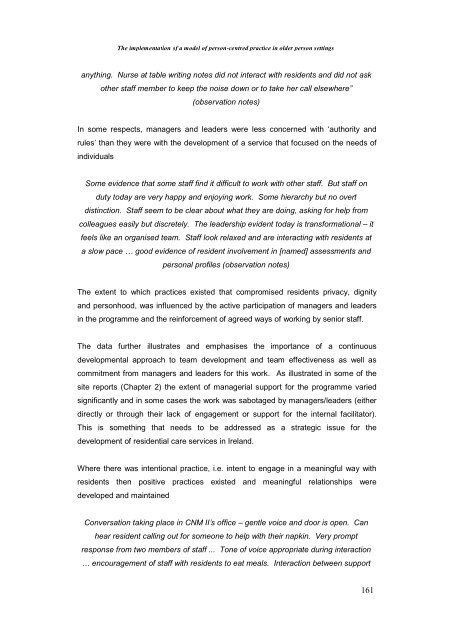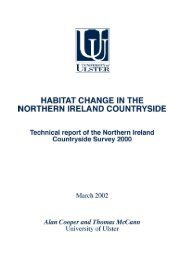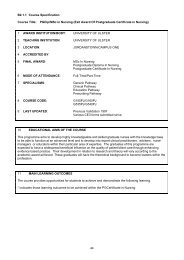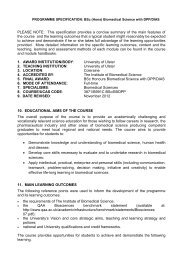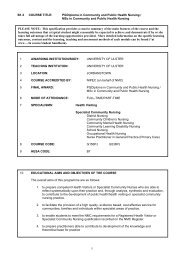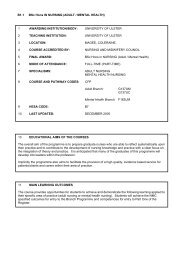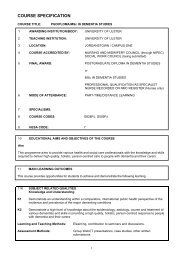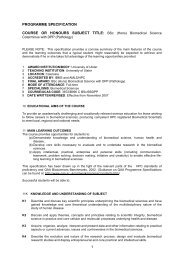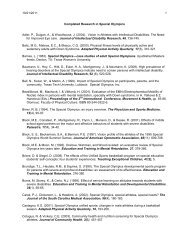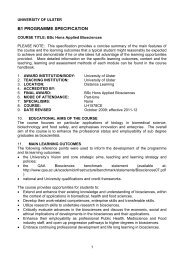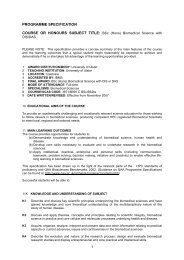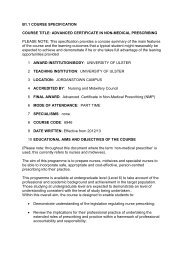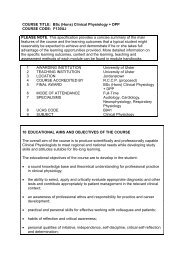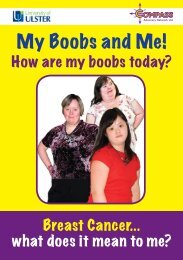The Implementation of a Model of Person-Centred Practice In Older ...
The Implementation of a Model of Person-Centred Practice In Older ...
The Implementation of a Model of Person-Centred Practice In Older ...
Create successful ePaper yourself
Turn your PDF publications into a flip-book with our unique Google optimized e-Paper software.
<strong>The</strong> implementation <strong>of</strong> a model <strong>of</strong> person-centred practice in older person settings<br />
anything. Nurse at table writing notes did not interact with residents and did not ask<br />
other staff member to keep the noise down or to take her call elsewhere”<br />
(observation notes)<br />
<strong>In</strong> some respects, managers and leaders were less concerned with ‘authority and<br />
rules’ than they were with the development <strong>of</strong> a service that focused on the needs <strong>of</strong><br />
individuals<br />
Some evidence that some staff find it difficult to work with other staff. But staff on<br />
duty today are very happy and enjoying work. Some hierarchy but no overt<br />
distinction. Staff seem to be clear about what they are doing, asking for help from<br />
colleagues easily but discretely. <strong>The</strong> leadership evident today is transformational – it<br />
feels like an organised team. Staff look relaxed and are interacting with residents at<br />
a slow pace … good evidence <strong>of</strong> resident involvement in [named] assessments and<br />
personal pr<strong>of</strong>iles (observation notes)<br />
<strong>The</strong> extent to which practices existed that compromised residents privacy, dignity<br />
and personhood, was influenced by the active participation <strong>of</strong> managers and leaders<br />
in the programme and the reinforcement <strong>of</strong> agreed ways <strong>of</strong> working by senior staff.<br />
<strong>The</strong> data further illustrates and emphasises the importance <strong>of</strong> a continuous<br />
developmental approach to team development and team effectiveness as well as<br />
commitment from managers and leaders for this work. As illustrated in some <strong>of</strong> the<br />
site reports (Chapter 2) the extent <strong>of</strong> managerial support for the programme varied<br />
significantly and in some cases the work was sabotaged by managers/leaders (either<br />
directly or through their lack <strong>of</strong> engagement or support for the internal facilitator).<br />
This is something that needs to be addressed as a strategic issue for the<br />
development <strong>of</strong> residential care services in Ireland.<br />
Where there was intentional practice, i.e. intent to engage in a meaningful way with<br />
residents then positive practices existed and meaningful relationships were<br />
developed and maintained<br />
Conversation taking place in CNM II’s <strong>of</strong>fice – gentle voice and door is open. Can<br />
hear resident calling out for someone to help with their napkin. Very prompt<br />
response from two members <strong>of</strong> staff ... Tone <strong>of</strong> voice appropriate during interaction<br />
… encouragement <strong>of</strong> staff with residents to eat meals. <strong>In</strong>teraction between support<br />
161


